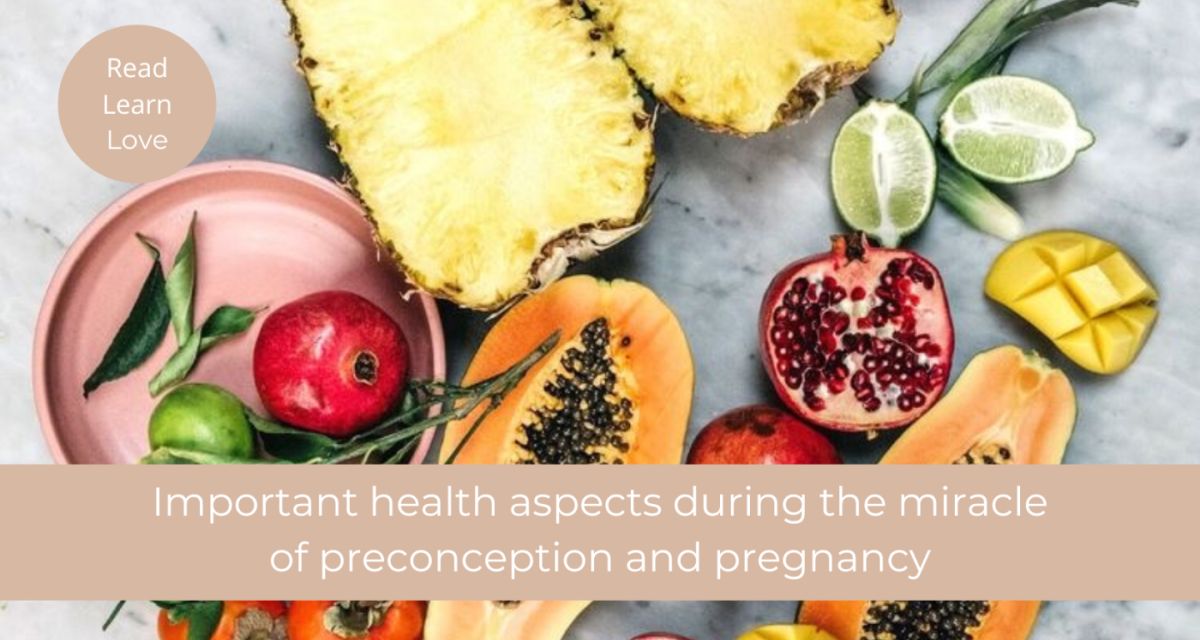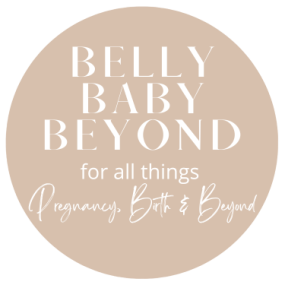Important health aspects during the miracle of preconception and pregnancy

Jan Macfarlane (Nutrition With Jan Marie), is one of Australia's leading Clinical Nutritionists, specialising in; family planning, pregnancy, autoimmunity, IBS/SIBO, gastrointestinal disorders, microbiome restoration, functional testing and more.
.jpg)
Important health aspects during the miracle of preconception and pregnancy
The human body is truly incredible, we can grow another human inside of us! Pregnancy is magical and scary all wrapped into one. My beautiful mummy patients whom I see in my clinic just want to know they are doing the very best for their growing baby, so I thought I would share with you a few of the most important aspects of health to help you during pre-conception and pregnancy.
Nutrients:
FOLATE (VITAMIN B9)
is a critical vitamin during and prior to conception. While your baby is developing during early pregnancy, folate helps form the neural tube and prevents some major birth defects of the baby's brain (anencephaly) and spine (spina bifida)
When supplementing be careful to look for higher quality natal supplements containing “folinic acid” vs “folic acid".
EPA/DHA (Omega-3 fatty acids)
are considered ‘essential fatty acids, because the body needs them for optimal health but does not produce them. They are essential in both male and female fertility by regulating sperm oocyte fusion and sperm oocyte fertilisation.
Omega-3’s also play a crucial role in a baby’s brain development and function.
SELENIUM
is a powerful antioxidant. Essential for male fertility due to its role in testosterone synthesis, normal sperm maturation, and motility, along with oocyte DNA production. Selenium also has a protective role during pregnancy due to its antioxidant action, and insulin-mimetic functions in maintaining normal cellular glucose uptake and use, as well as improving insulin sensitivity, protecting the immune system, and supporting the Thyroid.
ZINC
is an essential trace element known to play an important role in all living cells and immune regulation? Zinc is highly important for sperm health, including maturing spermatozoa, stabilisation of
sperm chromatin, sperm count and motility, along with aiding your baby’s cell growth and brain development.
VITAMIN D
is an essential hormone playing a role in both female and male fertility via the production and transport of sperm along with the function of genes associated with placental invasion, normal implantation, and angiogenesis? Vitamin D helps your baby's bones, teeth, kidneys, heart, and nervous system to develop. Maternal Vitamin D deficiency is also a suggested risk factor in pre-eclampsia.
IODINE
is an essential micronutrient for thyroid hormone synthesis. The requirement for iodine increases during early pregnancy, which is due to increased maternal thyroid hormone production, increased renal iodine losses, and transfer of iodine to the fetus.
Iodine is a particularly important nutrient as a deficiency is linked to defects in brain development in utero. Even mild maternal iodine deficiency can adversely affect the development during pregnancy
CALCIUM
is an essential mineral in male and female fertility, sperm physiology and function, and oocyte maturation. Calcium also helps form and maintain healthy teeth and bones for both you and your baby.
IRON
During pregnancy, the body makes additional blood for the mother and baby. Iron is essential for moving oxygen from the lungs to the rest of the body and to the baby. Iron requirements double during pregnancy. Iron intake is most important during the final trimester of pregnancy, as this is when the baby starts to store their own iron, which will meet their needs for the first 6 months of life.
ANTIOXIDANTS
protect key cellular components by neutralizing the damaging effects of free radicals, natural by-products of cell metabolism, helping to reduce exaggerated oxidative stress during placental development
Antioxidants such as Vitamin C also aid in the development, growth, and repair of a baby’s skin, bone, connective tissue, and gums, and assist with the absorption of iron and folate from plant-based foods.
MICROBIOME
It is now known that microbial programming begins and is a central component for the development of a balanced mucosal immune system in the newborn determining the fetal immune composition as well as immediate and long-lasting immunity and health outcomes.
Babies get their first microbiome from their mothers during birth. During that journey, a newborn baby gets completely covered with bacteria, giving it a brand-new microbiome.
PREBIOTICS
Are plant fibres that our gut bacteria eat? Eating a diverse array of prebiotics prior to and during pregnancy is key to helping your microbiome flourish to pass on to your baby. Prebiotics are found in fruits, vegetables, nuts, seeds, and whole grains such as oats and quinoa.
We can look into our 30,000+ good gut bacteria species and function through testing to help with microbiome restoration. You can book this through Microba test-trained practitioners.
Things to avoid during Pregnancy
TOXINS IN PRODUCTS
Toxins creep in everywhere, we can’t control them all, but particularly ones that are directly absorbed such as skin and hair care can be easily swapped to organic natural alternatives. Cleaning products are also a great way to reduce your toxin load around the house.
PESTICIDES/HERBICIDES
Going organic prior to and during pregnancy will help eliminate the ingestion of herbicides and pesticides in the body. Eating in season helps to reduce the costs of eating organic, and there are now many fabulous organic box delivery services.
HEAVY METALS
Heavy metals such as mercury can be a dangerous neurotoxin that disrupt brain function and harm the nervous system. It’s especially threatening to pregnant women. As a general rule, smaller fish—think whiting, salmon, squid, scallops, and sardines contain less mercury than larger varieties like flake (shark) and swordfish, which are higher up the food chain.
Read more about Mercury in Fish here
STRESS
We all know stress is bad for us. It is the most common denominator I see in clinics linked to ill health. Stress particularly when chronic, or “ongoing”, significantly impacts health and can affect pregnancy outcomes. Stress impacts all body systems - cardiovascular, respiratory, endocrine (hormones), gastrointestinal, and reproductive systems.
Self-care and relaxation are so hard to pencil into our busy lives. I too constantly struggle to keep a balance! But as a friend, not just a practitioner, I’m here to say you are worth it, and at such a vital time when your body and baby will need it the most – make you the number one priority.
.jpg)
Jan Marie
Share this article
Get a curated guide to the most important and interesting news, tips and exclusive offers sent straight to your inbox with our Belly Baby Beyond Newsletter below

